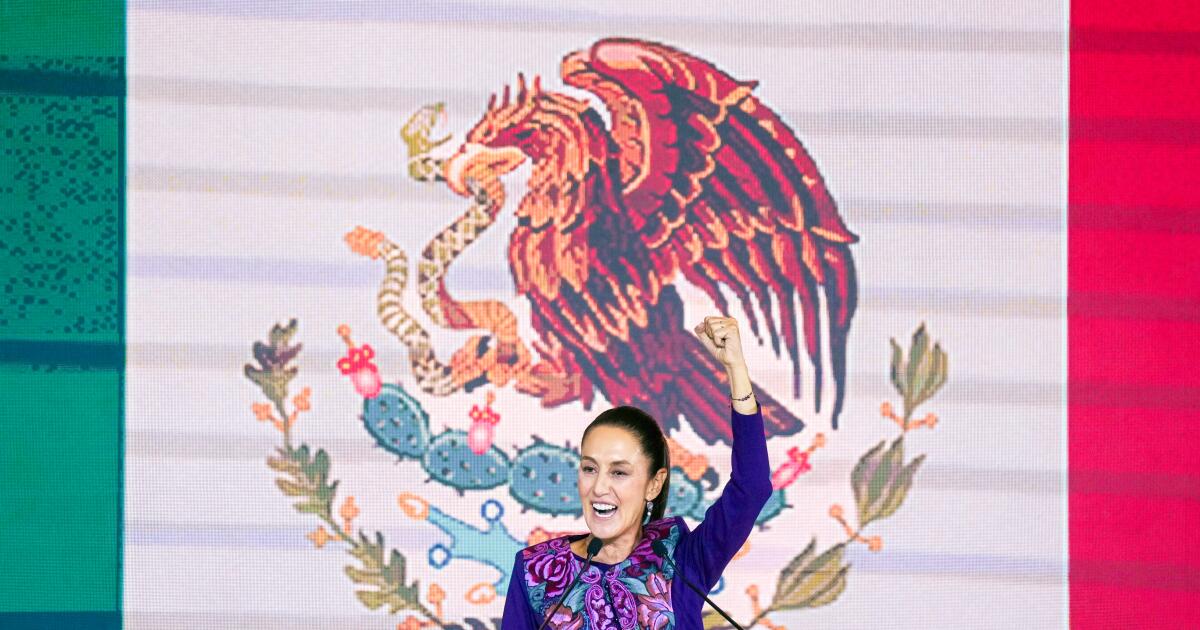MEXICO CITY —
Mexico has elected its first female president — a U.S.-educated climate scientist and former mayor whose landslide victory Sunday reflects both the continued dominance of the country’s ruling party as well as the vast strides made by women in politics here.
That Mexico will have a female leader before the United States and the majority of the other countries in the world is no accident.
For years, Mexico has required political parties to ensure that female candidates make up at least 50% of all competitors in federal, state and municipal elections.
It has transformed politics: More than half of the members of Congress and nearly a third of governors are women, and women head the Supreme Court and the ministries of the interior, education, economy, public security and foreign relations.
Political scientists say female leaders have helped push some of Mexico’s most progressive policies, including a federal law that gives domestic workers the right to social security and the decriminalization of abortion by several states before the Supreme Court ruled last year that it should be allowed nationwide.
Supporters of President-elect Claudia Sheinbaum celebrate early Monday at the Zocalo, Mexico City’s main square.
The election of Claudia Sheinbaum shatters the last glass ceiling in politics in a country where women were barred from voting until 1954, and where a culture of sexism and high rates of violence against women still prevail.
“In 200 years of the Mexican republic, I have become the first woman president,” Sheinbaum, 61, told supporters in her acceptance speech Sunday night, describing her win as a victory for all women.
“I did not arrive alone,” she said. “We all arrived.”
She is set to be sworn in Oct. 1, taking the helm of a prosperous but polarized nation plagued by widespread gang violence.
Sheinbaum has vowed to continue the path cut by outgoing President Andrés Manuel López Obrador, a populist widely known as AMLO who helped slash poverty by doubling the minimum wage and expanding the country’s welfare system while giving extraordinary new powers to the military and failing to halt cartel violence.
She backs some of his most divisive proposals, including a series of constitutional changes that critics worry would erode democratic checks and balances.
Her extraordinary margin of victory — she won more than twice as many votes as her main competitor — was largely seen as a vote of confidence for López Obrador and the party he founded, Morena.
But how Sheinbaum will navigate his long shadow is already the central question of her presidency. López Obrador has vowed to retire from politics, but many wonder whether he will find a way to remain in the fray that has animated his entire adult life.
Sheinbaum, for her part, has dismissed the implication that she will be the former president’s puppet as sexist. “There’s a hint of misogyny, of machismo there,” she said in one interview.
Veteran Mexican journalist Jorge Zepeda Patterson suggested that Sheinbaum is up against a lot.
“The generals, the union leaders, the party















